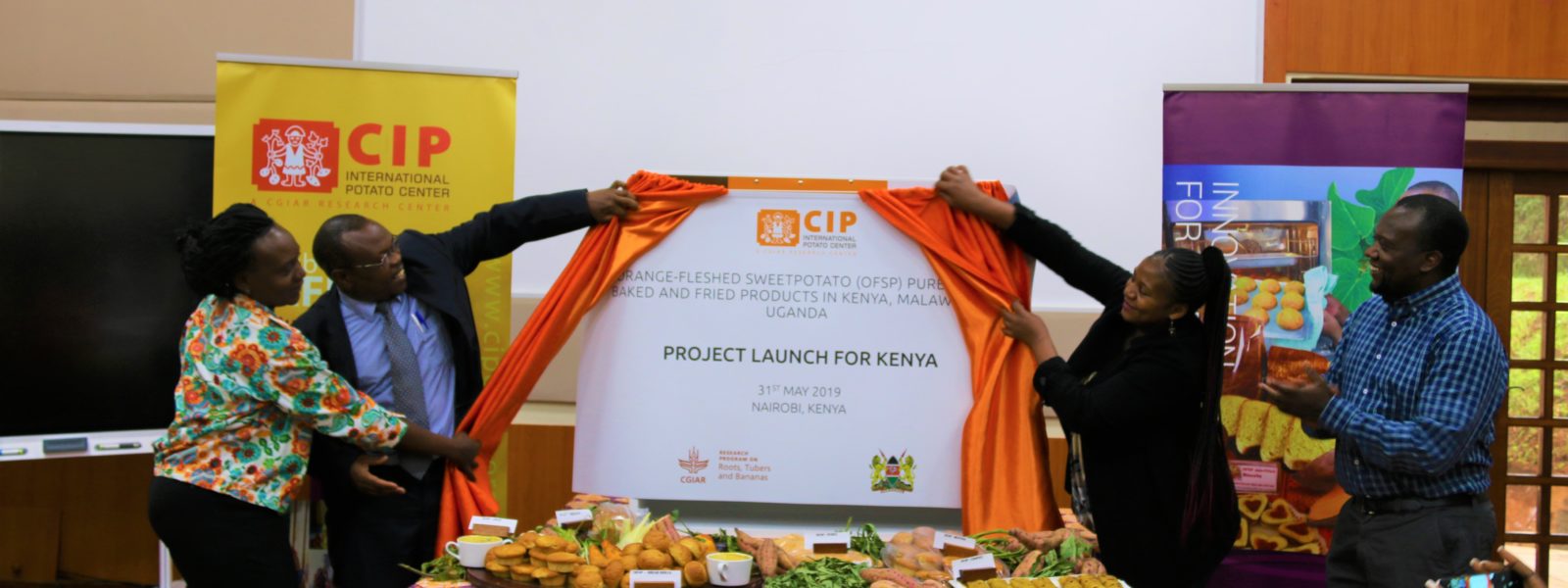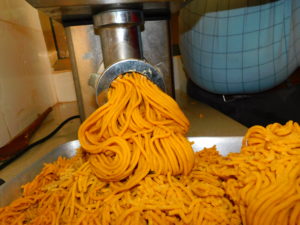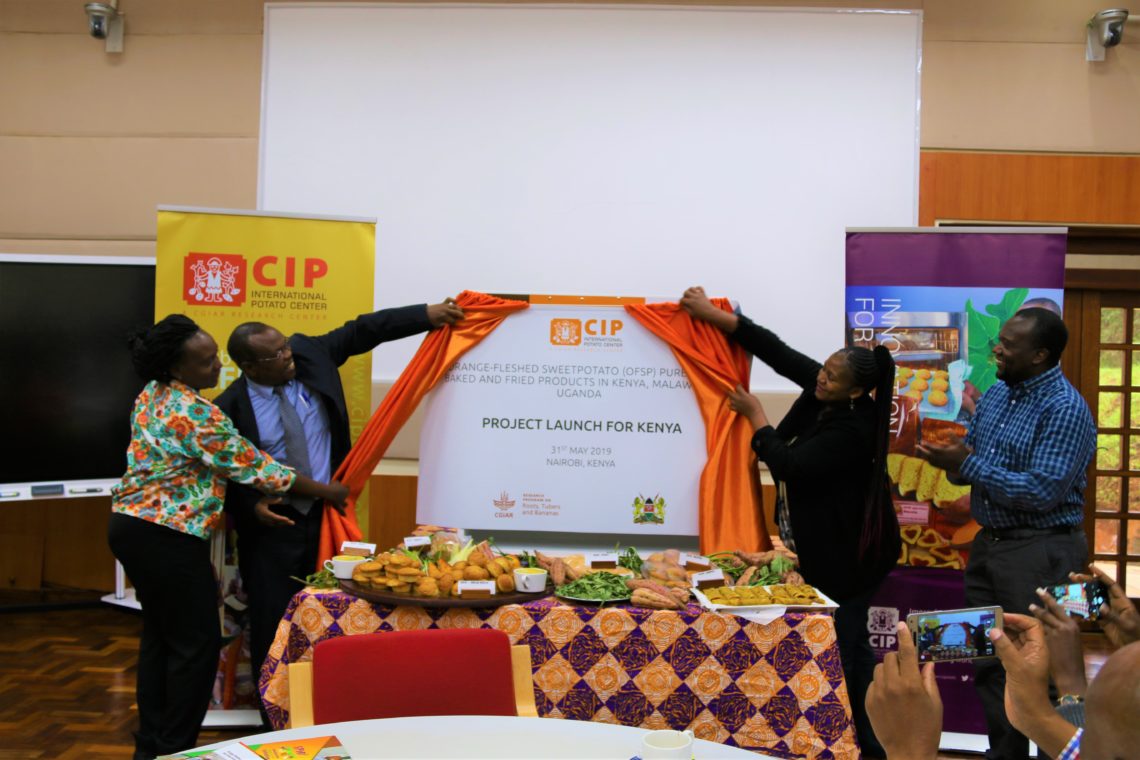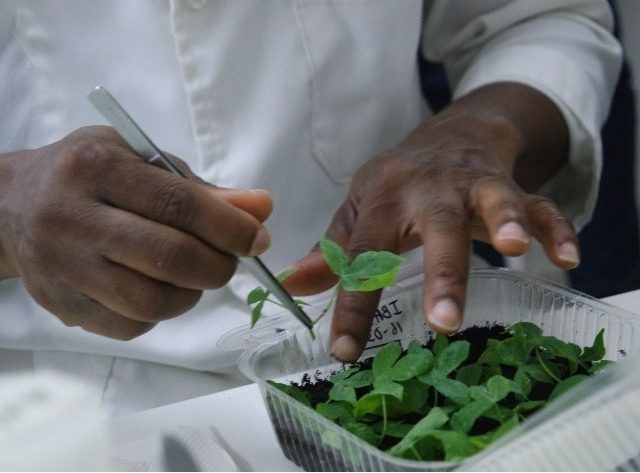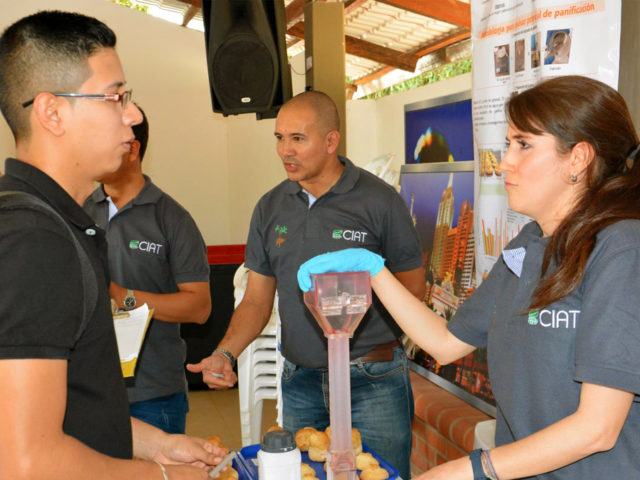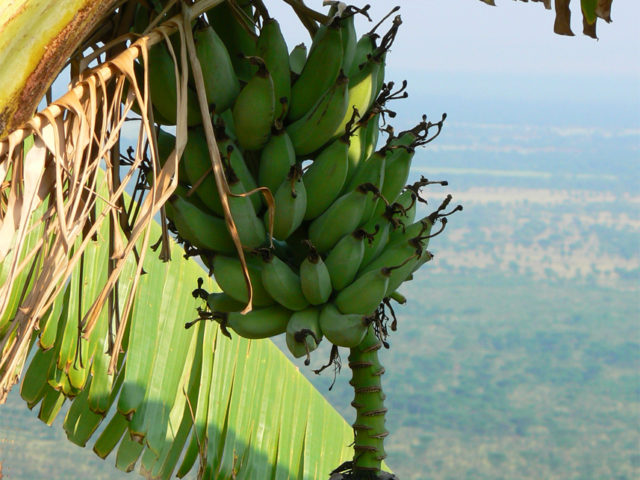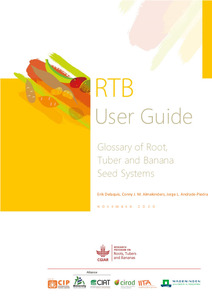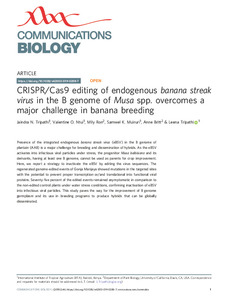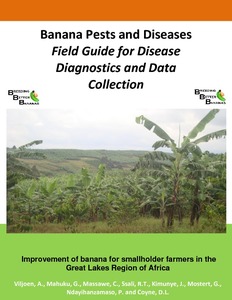In late May the International Potato Centre (CIP) organized a stakeholder engagement and launch meeting in Nairobi, Kenya bringing together over 20 organizations involved in sweetpotato value chain in Kenya. The launch involved representatives at the national level from the Ministry of Agriculture (MOA), Ministry of Health and the Kenya Bureau of Standards (KEBS). The new project titled “Scaling up the use of Orange Fleshed Puree for Baked and Fried Products” will be implemented in Kenya, Uganda, and Malawi. The stakeholders worked together on the modalities of creating synergy and layering, mapping them to who is doing what, where and possible linkages, a key ingredient that most projects overlook limiting the efforts to go to scale. Speaking through the launch Tawanda Muzhingi, CIP regional food scientist explained the potential of orange-fleshed sweetpotato (OFSP) as a highly nutritious biofortified crop, that is short maturing (3-4 months), high yielding with low production costs which makes it a suitable to addresses vitamin A deficiency, food insecurity and low incomes among households in rural sub-Saharan Africa. He explained that extensive scientific evidence had shown that OFSP when consumed regularly reduced vitamin A deficiency in women, young children and the whole family.
John Waithaka, the principal agriculture officer for the Ministry of Agriculture, Livestock, and Fisheries emphasized the need for increased agro-processing which fits in in the government “Big 4” agenda for Kenya. He noted that increased investment in the OFSP puree processing and OFSP value chain by the private and public sectors in Kenya will create employment and income opportunities for men, women, and youth, which the government is committed to delivering.
In the baking industry, it has been shown that OFSP puree can be used as a substitute for up to 30-50% of wheat flour in a range of baked or fried products, reducing production costs by 12% and increasing nutritional content. Some of the largest supermarkets in Kenya, Tuskys, and Naivas, who have baked and sold OFSP products have shown that they are widely accepted and liked by consumers.
Benjamin Kivuva, assistant director of agriculture from Kenya Agricultural and Livestock Extension Organization (KALRO) questioned why there were so few investments and yet the technology is simple and products nutritious. “One of the things that limits small and medium investors to get into processing is standardization and food safety,” said Agnes Nzomo of the KEBS and assured the potential investors on the willingness of KEBS to support.
The low production costs of OFSP makes it an ideal crop for youth and women. The OFSP varieties are open access to public goods, so anyone can multiply seed without a license. This means that people with limited money can get involved in vine multiplication, transportation as well as root aggregation. “Until people learn and get the knowledge of how to run a business, we will keep relying on donor funding and not growing our own business,” said Antonio Magnaghi, a food processing specialist. It was recognized that identifying entrepreneurial youth and linking them to business skills development will be a key entry point for this project.
The CGIAR Research Program on Roots, Tubers and Bananas funded CIP with a scaling grant to accelerate the use of OFSP puree in Kenya, Malawi and Uganda. The two-year (2019-2021) project targets both formal (processors) and informal (street vendors) sectors with OFSP puree as a major ingredient to reduce the use of wheat flour and to enrich products with vitamin A.
Unlike previous efforts to promote the use of OFSP in Kenya, this initiative will employ the scaling readiness approach to identify and address bottlenecks along the OFSP value chain to enable it to go to scale. By addressing the bottlenecks such as farmer organization, seasonal production, limited extension service, food safety, access to credit among others, farmers will benefit from a ready market for their roots, and as a result, increasing incomes.
Increased OFSP root and puree production will lead to expanded markets, attracting investment, creating jobs and income opportunities along the value chain. Making OFSP enriched products more widely available and affordable will improve the nutrition of women and children. The blog is written and photos provided by Rose Chesoli.
